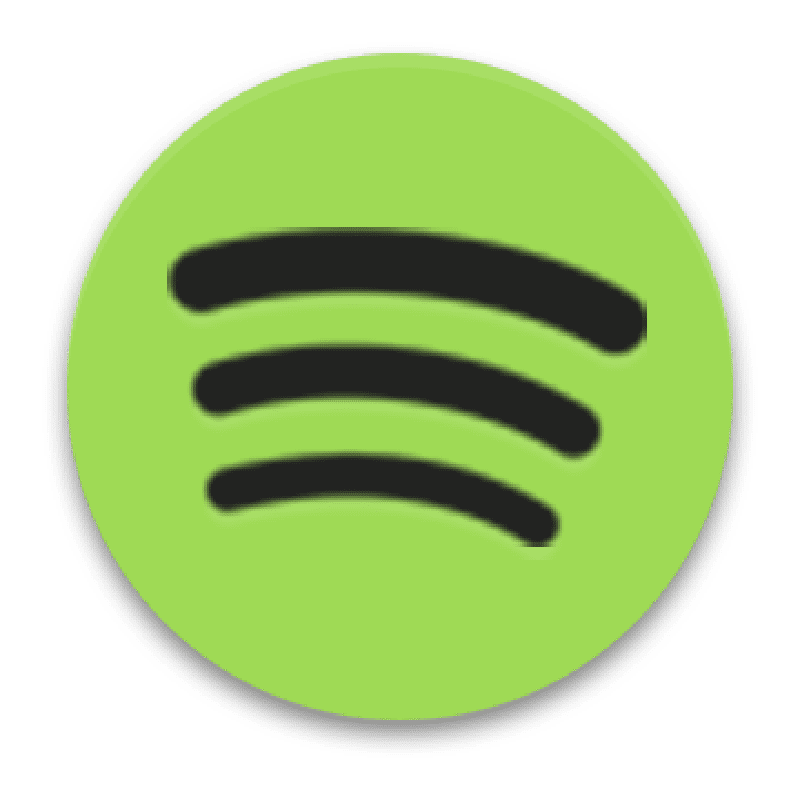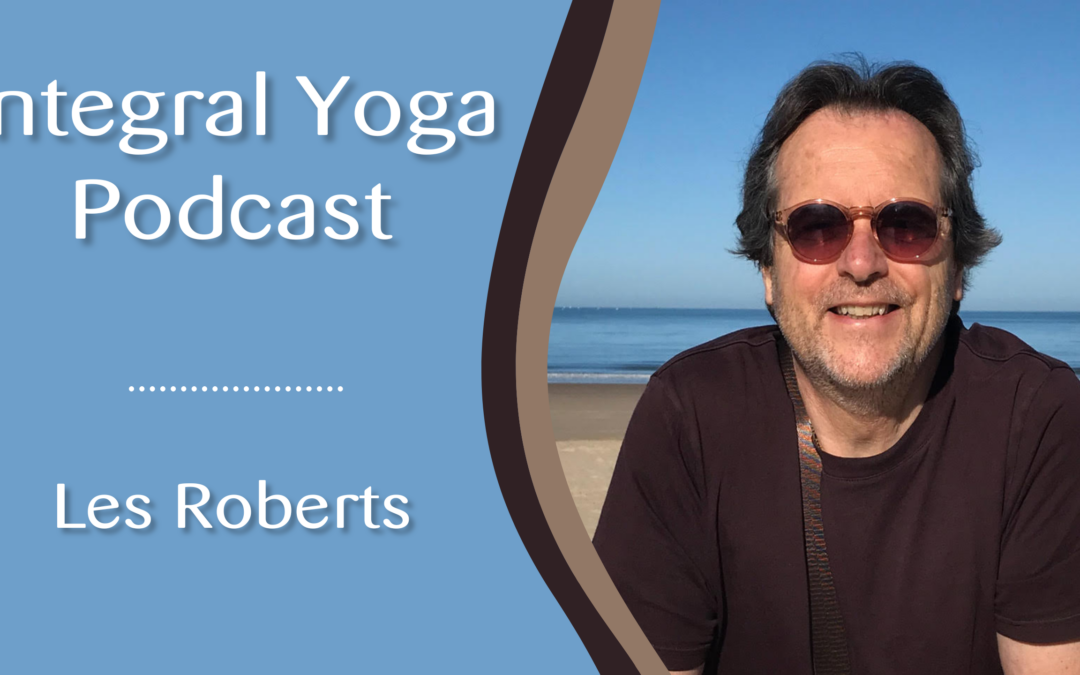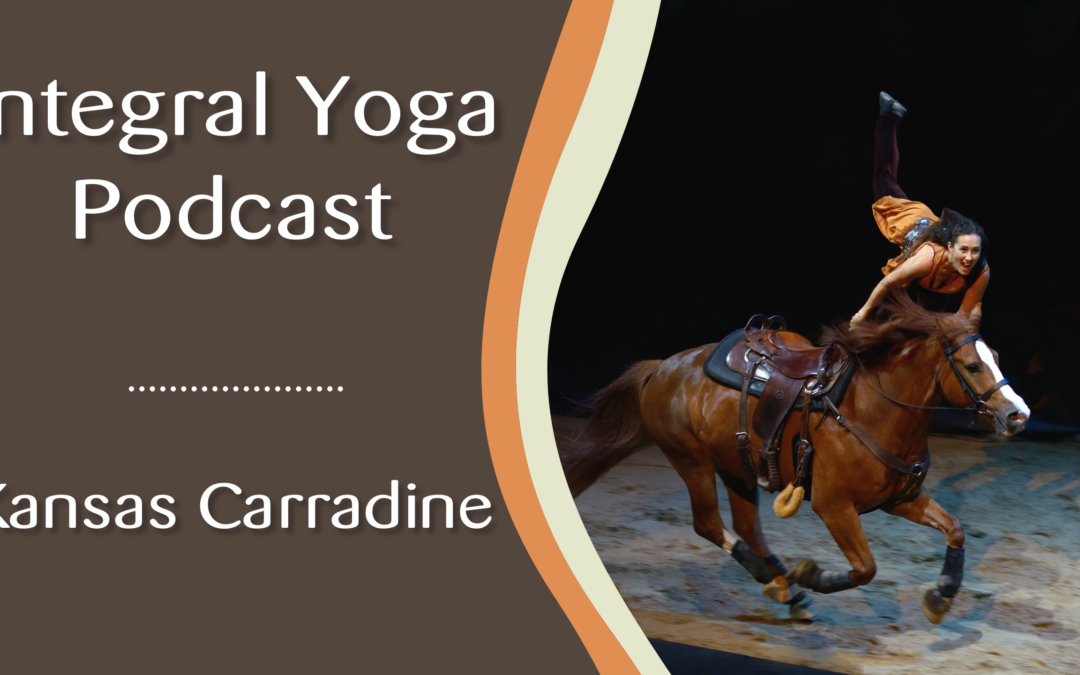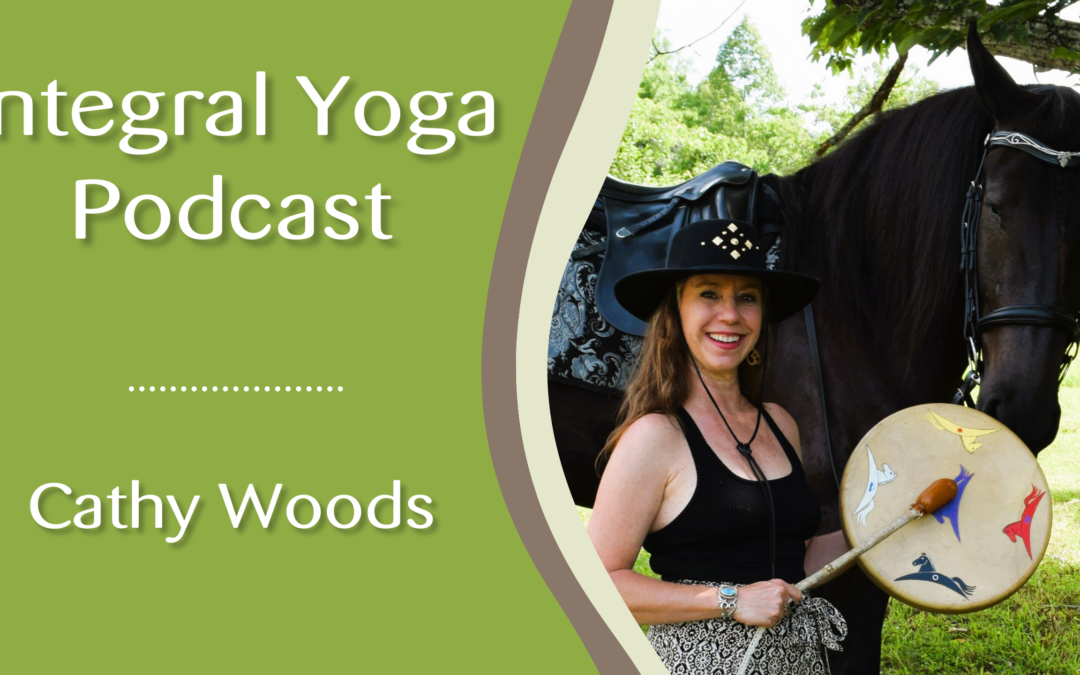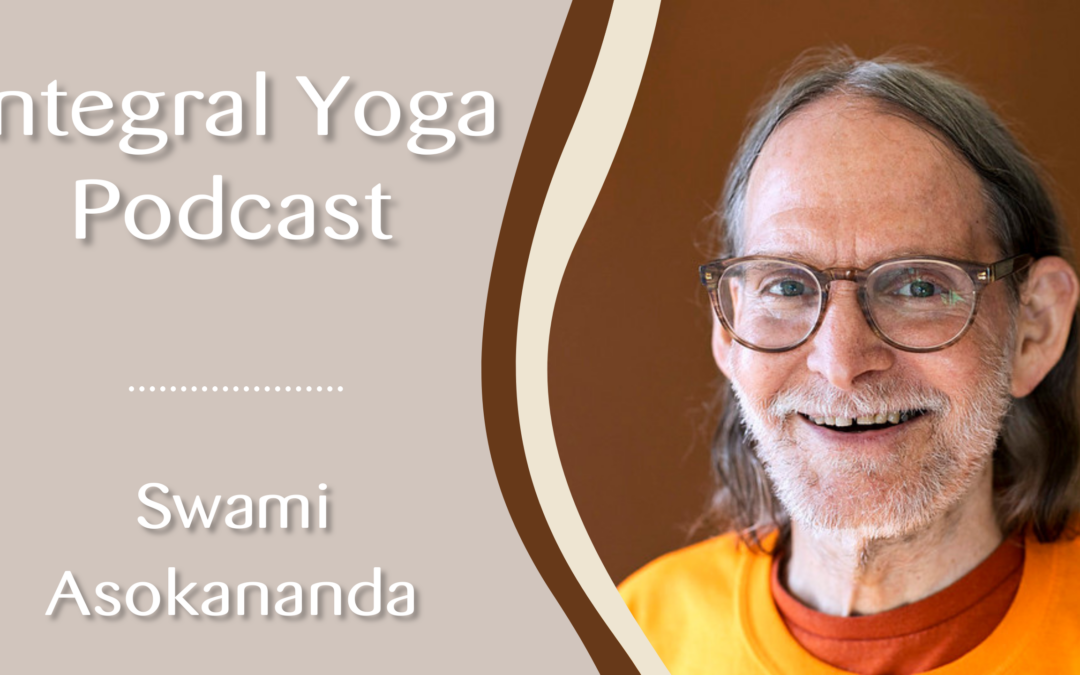Moksha 0:00
The sexism of poverty Do they have access to the health care they need to the education they need because music itself is a practice
Avi 0:11
when we're vulnerable. It's actually a gift to other other full on loving jokes about flatulence I laid up when I hear you say that. Hello, and welcome to integral yoga podcast. Today, I'm so happy to be joined by a member of who knows a little bit about who knows, they function as a duo, or as a band, who does core musicians are Moshe summer, and Jamal Wade Heinz. And today I'm joined by Moshe and who does have been fortunate to have incredible performance opportunities throughout the years and have toured internationally since 2006. Collaborating with wild, astonishing and respected artists, musicians, dancers, and activists, and they've come to yoga Ville a few times to perform here as well, and are involved in the integral yoga community. So Moshe, thanks so much for being here today. I want to start by asking you about just how you discovered integral yoga. And how that relationship unfolded for you?
Moksha 1:19
That's a great question. Well, our first introduction was actually through the I was in New York City. We played there many times when we were living up there and really kind of, through that came to know some of the essential teachings It was like one of those sneaky things where we thought we were playing a normal yoga center, and then discovered much more in the process. And, you know, it was interesting, because, you know, a lot of our sort of more spiritual training is through the the lineage of Hazzard my accont Sufi mystic who brought Sufism to the west. And, you know, one of his core teachings was the universal worship, which was essentially a ceremony honoring all faiths and trying to give equal homage to all faiths, and what could the power of bringing together the shared message, while still honoring the separate ways, and expressions of that message. And, you know, that's a lot of what we kind of discovered in what was being presented through IOI. And at a certain point, we moved down to the south, we live near Nashville, in Kentucky, as we talked about earlier and got to go have been a few times to where you are, and it's really, it's a really beautiful and powerful place. And you know, that's that very thing that comes through is that sense of inclusion and what has come from the teachings that were given, and that continue to be empowered through the work that's happening now. So.
Avi 3:06
So I know you do a lot of work as an activist, is this message that you were just describing? about, you know, many traditions and honoring them and seeing the, the universal truth of the message? Is that a part of the activism, that you're a part of a part of the message that you try to kind of send out to the world about more of kind of accepting and being inclusive of everyone?
Moksha 3:37
In a sense, yes. I mean, I think we were actually active in a few different areas, and interfaith work has always been important to us. But you know, through the years, one of the things that we've learned, like, the more the more sort of social action we've done, the more we've realized that, you know, one of the biggest issues is not necessarily in what distinguishes us in terms of beliefs, or where we are from, or those types of things so much honestly, as economic divisions. And so, we continue to want to do interfaith work, but where our focus has been for the last seven years was about seven years ago, we became congressional district representatives for the nonprofit one. And the main aim with that is working to end extreme poverty. And, you know, though, through that time, we've learned a great deal about what that even means how that plays out. And, you know, that's really like the biggest difference, you know, that's the biggest sort of dividing factor that happens in terms of how people's lives can take shape and what their capacity even is, is like From day one, do they have access to the health care they need? Do they have access to the education they need? You know, and we've done a lot through one. In the last years, especially, there's been a lot of looking at some of the sexism of poverty, especially in places of extreme poverty, where males are given priority in terms of having access to education, females are automatically assumed that they will simply be the ones keeping everything going in terms of, you know, feeding the people and having children etc, etc. And, you know, that's sort of a whole thing to delve into. But I mean, it's really interesting. From our perspective, it's like we, what we don't realize in the West is how much of an impact we have, with our voices in relation to people who are not heard, because of where they live and how they live. And, you know, just in the US alone, there's, there's a huge budget that is simply already there, it doesn't have to be worked for, it's simply there in terms of helping people in other places who are living in extreme poverty. And what is needed often is simply guidance of how that budget is used. And so that's a big part of what we've done is we have meetings with different congressmen and senators. And being in Kentucky being the Kentucky reps, we meet with Rand Paul and Mitch McConnell and Brett Guthrie and others, and essentially, guide them in terms of the most effective ways they can use that budget to help people who are, you know, hurting the most with it? In the last year, there's been so much in relation to COVID. I mean, if we look at what's happening, especially in India and Africa now, you know, it's just, it's so painful to look at that, from an honest perspective, and not looking away when we see what's happening. And so we've been in the last months behind the whole push to actually make it. So vaccines are accessible to those places. And it's just in the last couple of days that actually Biden has approved. I think it's, I forget the number of doses, but I think it's a huge number that he just approved, will be actually going to, especially India and Africa to help with what's happening right now. So that's a little bit of a long winded answer to your question. But
in short, I mean, in terms of working to end extreme poverty, basically, it's, it's not just one method, it's basically looking at it and continuously revising, like, when we first started, we did a whole thing to be able to bring sustainable electricity to Africa, so that schools and hospitals and that kind of thing could have even the ability to just like, refrigerate vaccines and make it safer, you know, make students be able to see and make it so that there were streetlights in places where there were, there was more violence, so that kids could get home safely from school. Right. And so, and that was approved, and that's been moved forward with. And then there's been a big push around education, and now helping in terms of the health crisis. So it's really interesting, but it becomes adaptive, you know, in terms of, and I think that's what we have to do, in general is like, not not focus on the method or the approach in terms of what we're doing, but focus on what the problem is, and then how we can, how we can help that, so.
Avi 9:01
So what why do you do this? Why do you choose to spend your time trying to help out in these ways? That's a good question. Um, I've been drawn to it since I was a kid. You know, I think
Moksha 9:20
it helped to have parents who were conscious about this stuff. I mean, it wasn't in the same way. My parents were. Were environmental activists in terms of land conservation, which still means a great deal to me. But I grew up with some of that in my mind. And then, you know, like, even in high school, I was the president of the human and animal rights club at school, right. We were doing fundraising. I mean, I've always just been, you know, I think it's really important for especially kids to understand how privileged We are, and to understand that not all beings have that privilege. And that it's not just that we're lucky, it's that we also have a certain amount of responsibility with that. So that's like my innate moral compass with this. That said, you know, especially like when we were first, doing music full time, you know, I graduated University, and there were several years where we were just like, 100%, in the music, and part of me was like telling myself, Well, this is positive work in the world, this is work that fosters healing for people, etc. And I still completely believe that. I mean, I think music and the arts are, like the biggest healing tool that can exist. But I also felt it was, I realized, I was getting cynical with what that change was. And I realized that it felt narcissistic to think that just my music was a big enough healing tool for what the need was out there. And so we just felt this drive to do more hands on work with it. And interestingly, like, when we first wanted to do that, I thought it would be like really hands on, I was just like, I'll just volunteer in an animal shelter or something. And the more we did it, the more we kept being asked to be the ones doing meetings with, you know, with the congressmen and senators. And we were being asked to also, like, help encourage people through our music. So using the stage as a platform, to get other people involved in things like letter writing, and making calls to leaders and that kind of thing. So it was interesting, because it just sort of slowly did this interesting thing where it turned around and became part of what we do through music, you know, using music as a tool for that very thing. So that's sort of a, you know, an interest, it was an interesting journey to discover, because I think every one of us can be in service. But how that service takes shape is really different. And different people have different strengths with how they can be of service. So
Avi 12:30
yeah, and one thing I'm really interested in is like, how can this change? Can this work unfold? Like really, on a psychological aspect for a human being, because what I noticed is, is that people don't really like to be told what to do. So now, right, like, even even when you resonate with it, and it makes a lot of sense, like, Okay, this is the work that needs to be done, and we need people to do it. And so go ahead and do it. That doesn't seem to be as effective as kind of what I just heard you say a little bit is that diving internally, maybe asking the question, what do I want to do with my time in my life? And then from that question, arises, a certain a certain passion of fire, that is a lot stronger, right? Then it would be just if like, you're kind of obeying what someone else is saying, saying for you to do, right?
Moksha 13:25
Yeah, I mean, people who volunteer in a soup kitchen and a couple hours every week, that's just as important, if not more important than how I'm doing it. This is just how I can do it. Because it's what I'm most effective with, you know, and I think that's like, but we do we have to ask ourselves, like, how, how can I do this? And how do I want to do this? Because the reality is, like, everyone I know, who does any kind of service work ends up feeling, no matter how much work it is, ends up feeling like it's actually nourishing for them. And I feel that, you know, like, there are some times I walk away from this, and I'm like, wow, I feel really good right now. Like, I feel like this is this is feeding me. And, you know, it has it's fed me creatively to and, you know, just even just some of the musical collaborations that we've had in the last years and partnering with nonprofits in terms of the music we do, like, it's, it's been a joyous thing for me, too. So it feels like you know, it's not a one way street with any of this. And, and in terms of getting people involved, I like to make it fun and simple for people. You know, for example, like, let's say there's a bill we want to have passed in Congress, right? We can play a festival and we can have people right there at a table on the festival grounds with paper. And guidelines ready. And from the stage we can share, like, what is this bill? Why does it matter what a little accomplish? Now you have the chance you don't have to give money just go write a letter right there, you know, and then people be like, Oh, I can do that. I can do that. I mean, so I'm like, I don't know, I think people, I think a lot of people have this block where they feel it's going to be this whole big deal to do service work. And so I like to be like, No, just have fun, and you get a sticker in the process, or something like that.
Avi 15:32
So key, it's so key, especially I think, in this world today, where we're, like, totally inundated with information. And it's hard to keep up with, and we want to do these things. But we kind of need to have our hands held. And also have it be fun, right? Like what you said, like make it really, really simple. Yeah, it's good ski. Yeah.
Moksha 15:52
And you know, in the truth behind it, too, is like, if we weren't given like, it's all about collective action, it's all about like, what we can do, as teams as groups, on behalf of other people, because there's no way we could be the ones like doing everything in terms of writing the bills, and you know, like, doing every single step in the process, we're working with other people who are brilliant at those skill sets, you know, and then we get to just read the bill, and understand it, and present it, you know, so I think like, that's the thing is, there doesn't have to be loneliness in any of this real service is about coming together with other people. And you know, like, that's one of the biggest things I've learned through music, too. You know, one of the biggest joys that I have through music is collaborating with other musicians and discovering and learning with them. And, you know, feeling like it's so much more powerful in that way than it could be alone.
Avi 17:00
It is such a light up when I hear you say that too. Because to me, like being a part of a team that's focused on something, a common goal, that is not getting caught very much in this whole ego, lower self type of thing. Like, that's how I want to spend my time, like being a part of a team, we're not competing, comparing against each other, we're just using what we've been given, you know, the gifts that we've been given towards accomplishing something that feels right to us.
Moksha 17:32
Yeah. Yeah, it's pretty, it's pretty amazing. And I mean, it does, it's interesting, but I look back at especially sort of my first years as an independent musician. And I mean, it's not true of like, my first my training, because a lot of my training I have, I mean, I have just sort of like classical training in terms of piano and that kind of stuff. But in my teens, even I started to tour with choirs. And that talk about, like, amazing group experience, right? Like, it's, that's such a powerful thing to be immersed in, but then breaking away and becoming my own songwriter, and my own musician. And on that path, I look back at like, there were a few years and though there were there was this definite ego battle, whether it was the thing of like, I'm not good enough, or Oh, I'm too good to be working with to be collaborating with so what are you doing to me, it was just this like, Oh, this like, turban II ego battle that I had to move through. And you know, it was in exactly the right time of my life, too, right, like late teens, early 20s. Right in there. And then. And then something broke through with that, where it was like, first of all, I think it was partly just that I felt like I was established enough on my own. And I believed in my own my own creative self enough to do it. But it was also this thing of like, Oh my gosh, there's this beautiful surrender when you can just, like, empower other people to and be part of that together. And it not have to be a competition in any way. If anything, it's more just like, wow, you're awesome. Let's do this. Like, let's see what we can do together. And, you know, speaking of advocacy work in that kind of thing, especially, it was through advocacy work that we met the lead singer of Jars of Clay, if you know that band, because we were both in DC, doing advocacy work. He was there for his nonprofit blood water, which is based here in Nashville, and we were there with one which I mentioned and we were actually working on similar bills and we didn't know who he was. We didn't know he was a musician, but we had this sort of dinner all together after a long day. of going into all the different offices of different senators and congressmen and he gave just a little talk about advocacy. And I was really moved. I mean, I remember like, you know, there was some, it had been a long day, it had been a lot had been a learning, but what his words were about that very thing of collective action. And I just, you know, I remember crying as he spoke. And we connected with him around that, and then discovered who he was as a musician. And we're like, oh, crap, excuse me, excuse the language. But he's an incredibly talented and interesting musician. And he's sort of investigated us musically, too, and felt the same way. And so we started to actually work together. And ever since then, we've worked with him a fair bit, and the rest of the guys from Jars of Clay. And they all do. I mean, they're really fueled by service work, too. And they do a lot of this. And some of the songwriting that we've done together, has been a really amazing process for me, because it's that thing of like, the egos aren't there, like it's not, you know, there's no one trying to prove anything, but everybody giving their all with it. And it's really amazing when that happens, you know, and that's, to me, that's the work of like, the dedicated, humble musician, warrior, you know, where it's, it's that thing of like, it's not cool. Like, who cares? You know, what matters is not necessarily me, what matters is what comes from this, like, what is it because that really and truly, is a higher power and a bigger entity than any of us as individuals. And so it's been a really cool growth and learning for me in terms of doing some of that, and our new album that's coming out this year. Almost all the guys from jars play on it, it was produced by one of the other members. And like, those are the people we've been, like, potted with in the studio for the last year or two. So yeah, it's really special when that happens.
Avi 22:29
Just thinking about the title of their band name Jars of Clay, why do you think they chose that? Then I have been told and I've completely forgotten. Again, what about urinate? What about who knows? Why that
Moksha 22:45
kudos, who? Who is, you know, in all the Abrahamic faiths, who is the breath, the sort of like, it's sort of like an interesting, it's like the silent sound of the, the divine of the one being right. So it's that but it's that breath. It's almost like the sort of like, Turkish and Abrahamic own, you know, where it's that, that shared breath and sound, and dose means true friend, so it's the true friend of the Divine breath and sound.
Avi 23:22
Wow. That's what we're working on it. Wow. Are you are you having fun? doing what you're doing? Loving?
Moksha 23:39
Oh, heck, yeah. Well, I love music so much. Honestly, the last little bit has been this, like, reorientation, because being not playing any shows in person for over a year because of COVID was like, an unexpected sabbatical. And we haven't had that long of no shows since, you know, before 2006 actually, like, I don't think back and I'm like, I, I don't think I've had that long since I was like, 14 or something. You know, I've always had performance since then. So it's kind of it was really different way of being and it certainly certainly didn't stop in terms of playing music. I mean, we wrote a whole album did another album of cover songs. We did an entire soundtrack for an interdisciplinary dance and video, please. Like we we were very busy in terms of playing music, but doing it in the studio is really different from being in person and in that performance space. And it was not last weekend, but the weekend before we had our first real re entry performance, which was a so Hold out concert that was hosted by like one of the Florida NPR stations. And we made it through everything we did it. And I mean, being in that space was really beautiful to like, re enter. But we also just, it felt like this. And I mean, I haven't had anxiety about performing in a really long time. And there was some of that just because I was like, wow, I'm just, I feel like I've been in retreat mode this whole time, you know, and this is a completely different space. So we leave. Next week, we leave for, like a real run of dates and New York and Vermont and, and I'm a little bit more geared up for it because of having that re entry recently, but it's just sort of interesting to witness, like the energy shift that's needed to do that, while staying grounded and calm and, you know, in that place, so I do love it, I do have fun. Performing is really fun performing with a full band at festivals is always really fun. And we won't do that until the fall just because of you know, COVID restrictions and stuff. But I have to like, I feel like I'm I'm still partially in retreat mode. So I need to I need to gracefully if I can move into real world experience.
Avi 26:31
I wanted to ask you about practice, something I've been thinking about a lot more and more recently, just getting clear, really, I mean, I always say, Oh, is that, you know, you get better when you practice, obviously. But just like the truth of it, right? And especially in terms of beginner's mind, when you first take a step in a new in a new direction to remember, okay, I'm just starting out here, like I need to put in the hours, essentially. And if I do, it's going to be a very different experience that it feels like now. So I'm just curious if that's been your experience with with practice, and you know, putting yourself out there and doing new things. And watching that process. Continue as you get more comfortable. What have you come to learn about practicing?
Moksha 27:22
Well, I think any kind of practice, whether we're looking at spiritual practice, or musical practice, or you know, yogic physical practice, what it really comes down to is doing it so much that you end up with muscle memory for it. Exactly, yeah. And, you know, even with the, you know, even with like performing, so that very thing of like, as soon as we were back on the stage doing it, it was like, okay, yes, I know, this, this is right, you know, like, it's a literal muscle memory. For me. And I mean, the same thing is true with any of those things. But it really takes I mean, the word practice is there for a reason, you do it over and over and over until it becomes really part of the fabric of who you are. And the end, of course, we all know that like, getting used to any kind of practice is the hardest part, you know, it's like, establishing it making it where it's really, it's really part of your almost like DNA, you know, like, it's part of the patterning of who you are. But once it becomes that, it's really, it's really special, because then there's so much more ease with it, too. And there's, I think there's a lot more forgiveness, when you know, from deep in yourself what the practice is, you know, because it's there's less preciousness around it too, because it just is. So I hope that makes sense in terms of, you know, what you meant with it, but I'll also share that, you know, when I first you know, playing music is an interesting thing, because music itself is a practice and it can be a very private practice a very deep inner practice, and then performing music is a different one. And when I first put when I first started performing music, I would get a lot of anxiety. And you know, I had to it was again a real ego training because I had to basically I had to basically through practice, train my body and self and voice to allow like, a bigger power to come through and to not be in the way and for it not to need to be this like back and forth. simply just sort of being a channel for it. And I think I've experienced that in terms of other forms of practice, too, you know, where it's really just a like, it's like cleaning, you know, it's like, if our windows get too foggy, the light doesn't come through as well. And the practice is not necessarily the action itself, so much is like, keeping it clean, you know, and keeping the channels nice and clear. And, you know, not too many cobwebs and, you know, not too many hurdles. And, you know, and so, you know, in terms of that what I was sharing is, like, that's how it started, for me was that thing of anxiety and performing, and it was this whole, like, back and forth thing. And then when I discovered how to, like, train my own ego, and just see and just let it come through, there suddenly, to was much more humor about it, and much more joy in the process. And when the stakes, you know, there was like a tipping point, I wish I could look back and go, Oh, it was then. But I don't know, I don't know when exactly it happened. But I now, you know, like, for many years now, it's like, if mistakes are made
slaf, it's okay, move on. And the fact is, like, the crowd responds more to that than they would to what the mistake was, you know, I used to, like, beat myself up when a mistake was made. And we're not just talking about on the musical performance front, we're talking about, like, you know, in spiritual practice, or whatever, like, if there was a mistake made, I would be like, Oh, so angry at myself, you know, and, like, beat myself up over it. And then there was that tipping point, and I'm just like, oh, that's funny. Look at what just happened, you know, I can just, you know, it just becomes part of like, the, the deeper understanding of it, and there has to be humor with it. And so now, like, you know, for example, at that show, a couple of weeks ago, we started one song, like, literally twice the speed that it should have been played. And we were just like, Oh, my gosh, we have to stop. Just hang on. And you know, with the crowd, I was just like, you know, what, y'all, this is our first real in person show, like, we are special with you today? Can we back up and do this? And, you know, they just laughed, and it was fine. It was, you know, great, because other people have empathy, and people are going through the same stuff, you know, so it just takes different forms with it. So the more we're a bit, we're able to just laugh, the more people will join the train, you know?
Avi 32:42
Yes, I, what I'm learning more and more is that when we're vulnerable, it's actually a gift to other other.
Unknown Speaker 32:50
Yeah,
Moksha 32:52
it's a gift. And we don't have to have shame about vulnerability. And that's the big, that's the biggest thing is not feeling apologetic about vulnerability.
Avi 33:05
It's like what you were mentioning before in terms of cleanliness, and I think that this is really the the point of all spiritual practices is getting getting clean. What does it mean to be a clean instrument?
Moksha 33:19
So yeah, and I think that there has to be a lot of forgiveness in the process. You know, I mean, if we look at a lot of the different spiritual teachers who've offered amazing work, there's a lot of messiness there, too. And, you know, in terms of our own spiritual seeking, we've definitely had some like, shattering of ideals in terms of because of the messiness of teachers coming out. And I think that can be like a point where I think most people and on the spiritual path have had this at one point or another, whether it's with something really small in terms of how a teacher is or whether it's something really big. And I think we can kind of become angry and cynical with it, or we can just simply acknowledge the delicacy of people, the fragility of people, the imperfection of people, and, again, have humor in the process. Yeah.
Avi 34:38
Thank you for that. I'm starting to look for opportunities to laugh in my day, more and more, really believing what you're saying. It's like, it's so healing, it changes everything, and it feels appropriate to be laughing. It really does. I have
Moksha 34:55
a seven year old little boy too. So there has to be like If I get too serious, that's when things start becoming problematic, you know. So it is I've got a two year old little girl, and more, so I probably promised he's like definitely at the like, full on loving jokes about flatulence right now.
Avi 35:24
All right, Moshe, thank you so much for this time. We're going to end I'm so happy to be offering a piece of your music called come home. Before we move into that, again, I want to say thank you, because we'll end with that. But is there anything about this piece of music that you'd like to share?
Moksha 35:45
Sure, just that it. You know, it was written in this time in the last year with everything happening with COVID. I can just push our presale for a moment we have our album is going to come out at the end of November. And this is the album that we've written through this whole time of basically being on retreat. And the album itself is called anthems of home, if you if you want to do the pre sale, that's awesome, because that helps us do the final steps in terms of getting the album out there. And you would get the album and or whatever, you know, cool package you pick in August, as opposed to November, so you'd get it way early. And everything is on our website, I'm sure you can share that information. But as I said, the whole album is called anthems of home. And, you know, I think we were all the last year and a half have been It has been a time as I've said of like, imposed retreat, and definitely looking at whatever we need to look at. In that time. You know, we were, as we already have said, like, all of our performances were put on hold, we were supposed to be touring in Africa and Europe and various places. And all of that was just pushed to the side, we were suddenly homeschooling our son, and neither of us have any skill teaching a seven year old in terms of that, you know, and so we were like, I think everyone was having to be a little bit uncomfortable. And the question was, were we able to come to a place of like, love and presence through that? Or was it more challenging than that were their losses, you know, where their gains what what came of this and you know, I'm grateful to say that like, the love of our family deepened even through this so while it was not always easy, it really put us to the test in terms of how we could rise to this and the song Come home is about that very thing of like departing from home and returning to home. And what that means is a bigger metaphor home as sell home as family homes community. So that's what this song is about.
Avi 38:13
Love it. Yes. And we'll put all the information in the show notes so feel free to look there and follow up with kudos. Moshe, thank you so much again for this time and thank you for being you. Thank you for being you. This was a wonderful conversation. All right, everyone, enjoy come home. Until next time.
Unknown Speaker 38:48
Do you
Unknown Speaker 38:53
so you
Unknown Speaker 39:14
the course
Unknown Speaker 39:40
you
Unknown Speaker 39:51
do you
Unknown Speaker 39:55
need to know
Unknown Speaker 39:58
run away
Unknown Speaker 40:06
On a course of coolish
Unknown Speaker 40:18
need to cook
Unknown Speaker 41:09
we'll see
Unknown Speaker 41:12
you
Unknown Speaker 41:14
john is
Unknown Speaker 41:27
to join us
Unknown Speaker 41:35
in the course of this
Avi 43:01
thanks for listening. If you've enjoyed this content and think others might as well, please feel free to share and subscribe.



